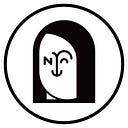Ever since the Moonbirds episode with its CC0 agreement happened, there has been a big discussion about NFT copyright in the crypto community. Supporters believe that this move opens up space for the secondary creation of NFTs and promotes the free development & commercialization of NFT content; however, some users, especially those who bought Moonbirds early on, believe that the project did not consult the community or owners before making the project public. They argue that this decision was against the spirit of the blockchain to announce important decisions, and it also hurts the economic interests of users.
So, what’s CC0, and what are the main reasons behind this implementation?
CC0 101
CC0 is a copyright digital license launched by the non-profit organization Creative Commons in 2009 to give up copyright and put works into the public domain. Strictly speaking, CC0 is not a license contract involving two parties, but a unilateral statement from the copyright owner.
Once the copyright owner declares the CC0 license, it means that the copyright of the work is waived to the maximum extent permitted by law, and then anyone can use it without identifying the author and source. In other words, you can duplicate it, rebrand it, market it — not just limited to your own NFT but any NFTs in the collection.
From the perspective of decentralized market communication, through CC0, NFT projects liberate the restrictions of copying, dissemination, and secondary creation. This allows the creators to enjoy extensive marketing on their collection without any hard promotion, and quickly accumulate a lot of attention, funds and talent; the more people join in, the more creativity will be stimulated, and eventually a positive flywheel will be formed.
Nouns: The Perfect Example
To understand the CC0 system in play, we can look at the Nouns NFT project as an example.
Nouns is an NFT project built on Ethereum and was launched on August 8 2021. Unlike other NFT projects, it does not sell all NFTs at one time, but generates algorithmically every 24 hours. A Noun NFT, once generated, will be auctioned on its website.
100% of the funds obtained from the auction of Noun NFTs will be deposited into the treasury for the development of the community. Each Noun NFT holder will automatically become a member of the Nouns DAO and have one vote of governance to vote on community proposals.
For the founding team, auctioning Nouns NFT does not provide itself with income (100% of the auction funds go to the treasury). Therefore, as compensation, the founding team can get 10 Noun NFT numbers for free in the first 5 years of the project, such as noun 0, noun 10, noun20, noun30, etc. These will be automatically sent to Nounders’ multi-signature wallet.
A crucial point that determines the success of CC0 is the time and method of CC0 being incorporated into the project. If an owner bought an NFT because of no CC0 license and the project takes this right away from them, is this considered a bad move for the benefit of the project?
One thing that will be a challenge is finding the balance of decentralization, between what’s beneficial and what’s lacking. One would say that members expressing their satisfaction (or dissatisfaction) towards a project could see project owners introduce proposals that can influence key decisions.
Although this is a relatively new concept, we are seeing more and more NFT projects consider CC0 agreements. We’re excited to see the future of CC0 and its influence on potential projects. Have you come across any interesting CC0 cases? Let us know!
